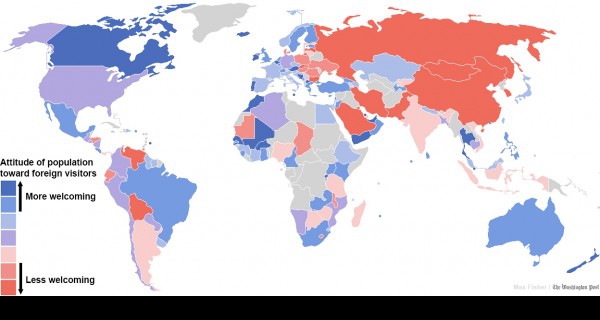The World Economic Forum released The Travel & Tourism Competitiveness Report 2013, providing research on how global communities can expand this part of their financial infrastructure. It sampled 140 countries.
An interesting aspect of the study, which was graphically depicted by the Washington Post’s World Views blog, is what places were more or less “welcoming” towards foreign visitors. The results will be surprising for many, and, as stated in the Washington Post article, “there is no easy ‘grand unifying theory’ … no single variable that explains the outcomes.”
